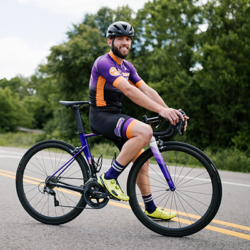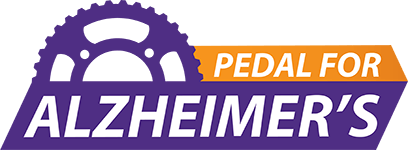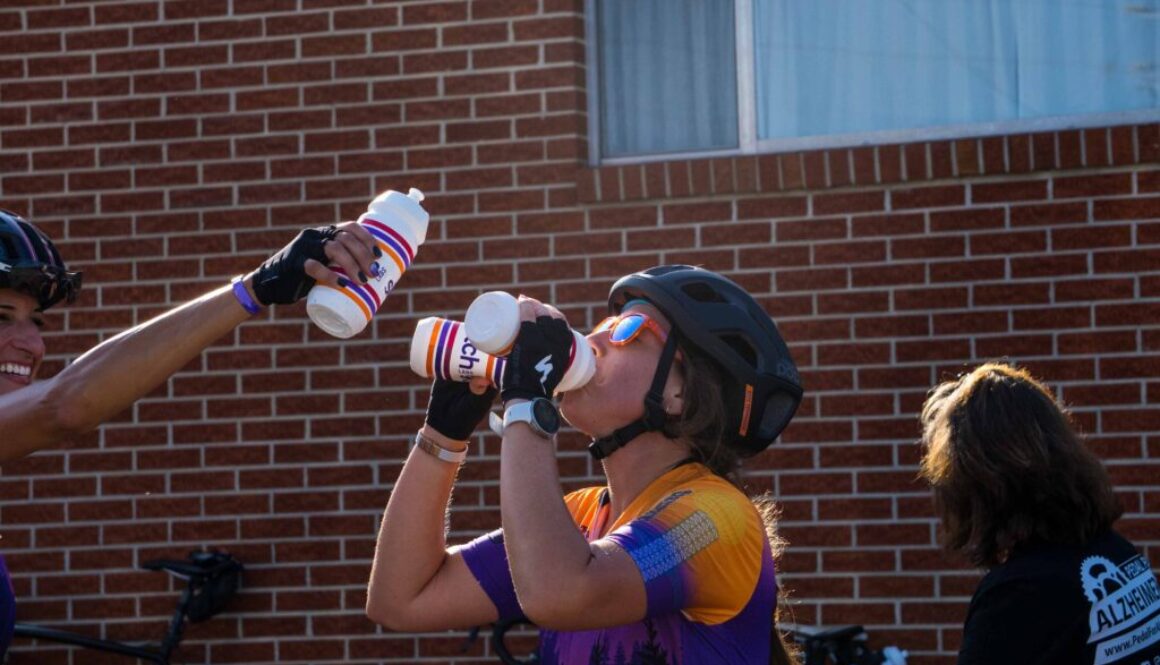How To Train for Your First Century Ride
Have you ever wanted to complete a century or metric century ride but don’t know where to start? Training for your first big ride can be daunting, but follow these simple steps to prepare your mind and body to accomplish your goals!
Step 1. Build a Solid Base and Plan
You want to start your training conservatively. Make sure you know your limits. It is better to go on a shorter ride at first to see how much your body responds. Start with 30 minutes to hour-long rides to establish a solid base. If you accomplish a 30-minute ride and you have enough energy to keep pedaling, consider adding 10-15 minutes to your next ride. It is not encouraged to feel completely exhausted after completing your first few rides. This could set you back with more recovery time needed, or worse, it could lead to an injury that could take you off course for completing your first century.
Step 2. Gradual Increases and Consistency
Consistently add 15-20 minutes to your rides weekly, focusing on longer days on the bike. You don’t need to ride every day but make sure you are staying consistent with training. As you feel stronger on longer rides start to increase your time, intensity and mileage gradually. Weekends are a great time to add more time and distance on the bike.
Step 3: Fueling and Recovery
When training for your first century, it is crucial to fuel your body properly and get enough rest and recovery. As your weekly training miles increase, your energy expenditure will increase. You need to fuel your body with the proper nutrition on and off the bike. Plus, don’t forget to eat and drink often while on your rides. Carry plenty of food and water for your rides or have planned stops to refuel while on the road. Fueling properly before and during your rides will help the body keep running at peak performance and reduce the risk of dehydration and bonking (the inability to continue, extreme physical weakness, usually caused by lack of glycogen in the body). Consuming the proper nutrition after a ride will help with the recovery process and add those essential nutrients that were depleted during the ride.
For more on what to eat during a ride, read tips from Susan Kitchen, Sports Certified Registered Dietitian, USA Triathlon and Ironman Certified Coach.
Sleep is also a very important part of the recovery and building process. Your sleep is important because it helps reduce cortisol levels. Cortisol is a hormone that breaks down tissues in the body for energy. Logging proper sleep allows the body to produce growth hormones to rebuild injured tissues from your training. Enjoy the opportunity to reward your body with recovery and sleep.
Step 4: Training Partner or Groups
Training for a century can lead to many hours of pedaling alone. Why not make it more enjoyable and train with others? Not only is it fun to have the same goal and accomplish that goal together, but there are many great aspects to training with people. Your training partner or group can help keep you motivated, stay on track with your training, help you push through those tough times, and have a fun social aspect to boost morale.
Step 5: Tapering for your Century
When your event is on the calendar, begin tapering two weeks before. You will want to reduce your training volume by 20-25% in week one of the tapering process. During this week, you want to focus more on recovery time, sleep and nutrition.
One week out, aim for a 2-3 hour steady paced ride. Mid-week, cover half or just over half of the event distance. During this week, you will start preparing the body to complete your first century. Continue with a proper nutrition plan to give your body the fuel it needs to complete the ride. Also, make sure you are getting enough sleep to aid in the recovery process and be ready to crush your goal!
Step 6: Enjoy the Journey
Remember, start slowly and progressively work your way up to your cycling goal! Most importantly, relish the process and have fun achieving your cycling milestones. Make sure you are riding fun routes that will keep you motivated and wanting to ride more. It’s time to hop on your bike and go for gold.
To learn more about Pedal for Alzheimer’s or resources about cycling, click here.

Feehery is a professional crit and road race cyclist who has raced in the USA Professional Cycling Championship for the past ten years. He has won multiple stages, been on the overall podium eight times and won the overall two times in the ten-day crit-racing series, Intelligentsia Cup Chicago. He currently races for the Miami Blazers and uses his global reach to share the mission of Pedal for Alzheimer’s. Feehery won his first National Championship in the overall and crit at the Collegiate Road National Championships in Richmond, Va. He also placed third in the 2016 Tour of Fuzhou and fourth in the 2015 Delta Road Race. Over his professional cycling career, Feehery has over 50 professional wins.

